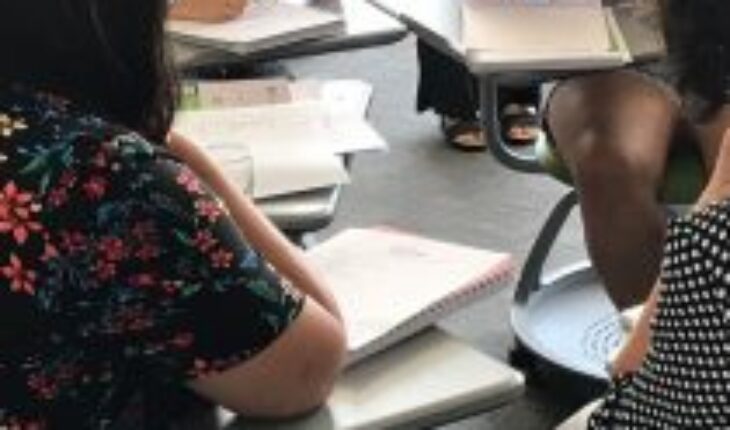There are still countries where girls and women are not educated and deprived of this universal right. Although in Chile we are far from this situation, since access is guaranteed, there are gender gaps that prevent achieving inclusive and quality education for all. We need to make decisive progress in promoting accountability and securing rights and opportunities to eliminate current gender disparities.
The World Economic Forum’s (WEF) Global Gender Gap Report 2022 revealed that, at the educational level, women are still overrepresented in higher education related to education, health and well-being, but are underrepresented in science, technology, engineering and mathematics. The primacy of male figures in everyday examples at school and in their environment, through language, symbols and famous people -among others- configures cultures and expectations that can deepen disparities. An example of this is observed in a recent study (LLYC), which analyzed 14 million news published during the last year: it confirms that women appear underrepresented, their proper name is shown only 21% of the time and their appearance is commented more than that of men. We need greater accountability from all actors to bridge gender gaps.
There is an implicit curriculum that circulates in our culture and educational system reproducing biases and stereotypes that limit opportunities for full development for women and society as a whole. The set of beliefs, knowledge and values that are taught non-explicitly in school and everyday life, regarding how social relations and practices between women and men are determined (what each should do), such as, for example, encouraging boys to study science and girls language, They favor gender differences that occur in the school space without us being aware that they are happening, and we continue to reproduce them without question, despite their repercussions on the academic, labor, economic decisions and life projects of the students.
We need to be and make our culture aware to transform ourselves into the citizenship we want to be. Three quarters of all teachers in Chile are working women and of these, 74.7% are classroom teachers, a participation that decreases as the level of education provided increases. A phenomenon that is repeated around managerial positions, the greater management responsibilities within establishments, the lower the presence of women.
The good news is that efforts are being made from different villages to achieve this goal. Initiatives such as the one carried out by educarchile –a platform of Fundación Chile and the Ministry of Education–, together with ComunidadMujer when teaching the course “Let’s transform schools from the gender approach”, in which more than 700 teachers, professionals and education assistants have participated, problematizing and identifying gender inequalities in the school context to contribute to its transformation and move towards a non-sexist education as part of the right to Education, contribute to the cultural change that our society goes through.
A few days before the start of a new school year and close to commemorating International Women’s Day, we need to renew our commitment to making visible the inequities that still persist, to strengthen that citizenship that we want to be, inclusive, diverse and with equal opportunities for men and women.
Follow us on
The content expressed in this opinion column is the sole responsibility of its author, and does not necessarily reflect the editorial line.l nor posture of El Mostrador.





